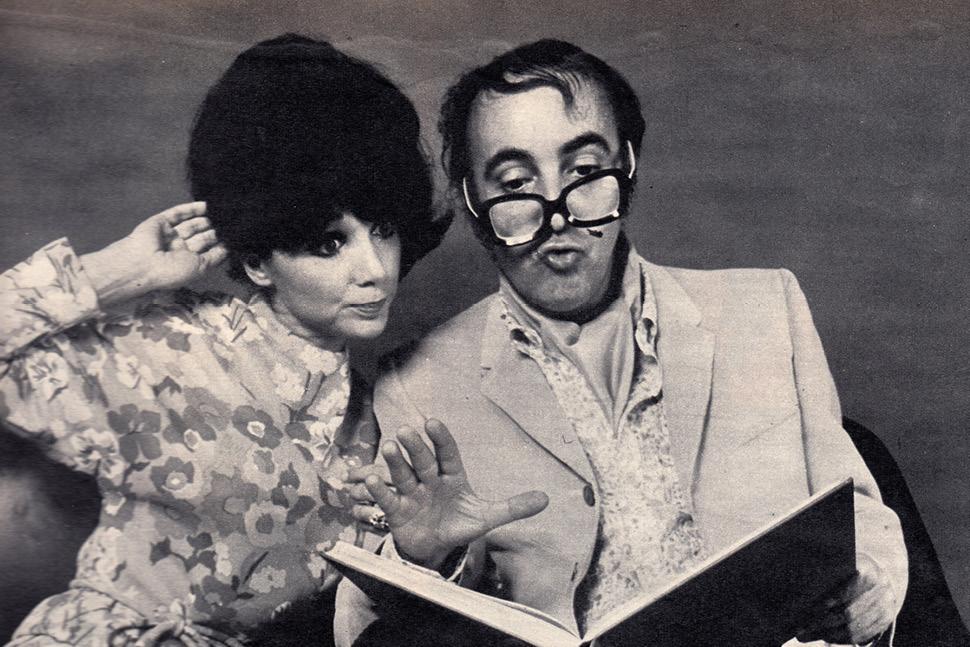| Director: | Fabrizio Laurenti, Niccolò Vivarelli |
|---|---|
| Production: | Teatime Film (Marcantonio Borghese, Taku Komaya), Istituto Luce Cinecittà, Wildside |
| Running Time: | 83’ |
| Language: | Italian, French, Spanish |
| Country: | Italy |
| Main Cast: | Adriano Aragozzini, Beppe Attene, Pupi Avati, Lars Block, Beryl Cunningham, Steve Della Casa, et al. |
| Cinematographer: | Fabrizio Laurenti |
| Editor: | Fabrizio Laurenti |
| Sound: | Riccardo Cimino |
| Notes: | archival research Ilaria Giaccio, Fiorentina Sensini |
Life as a B-Movie: Piero Vivarelli

Synopsis
This portrait of a revolutionary provoker links the restless life and kaleidoscopic filmography of Piero Vivarell, director of Italian B-movies of all kinds, lyricist of successful songs such as Celentano’s 24.000 baci, and screenwriter of the spaghetti-western Django, which was so popular with Quentin Tarantino. Apart from Che Guevara, he was the only foreigner to have a membership card of the Cuban Communist Party signed by Fidel Castro.
Going from Urlatori alla sbarra (Howlers of the Dock), a musical film with Celentano, Chet Baker and Mina about the world of the younger generation that was beginning to move to the rhythm of rock, to films about current political topics like Oggi a Berlino (East Zone, West Zone), and Django that anticipated a spaghetti-western style that was destined to become very popular, Vivarelli rode the wave of the moment. He adapted cartoons such as Satanik and Mister X (Avenger X) and portrayed the sexual revolution with Il dio serpente (The Snake God).
With its creative narration the documentary looks closely at a neglected area of Italian and international pop culture whilst at the same time studying a life that is itself a genre film a film ‘à la Vivarelli’: exaggerated, ironic, sensual, full of life, music and action.
Directors’ Statement
Describing Piero Vivarelli’s life and looking back on his cinema, we would like to pay homage to an Italian cinema that we loved and with which we grew up. It is a cinema that is not considered auteur cinema and has never won a Palm or a Lion, but one that has shaped an entire generation’s imagination. This generation supported Django and Che Guevara, mixing them a bit, imagining they were in worlds, some more exotic than others, where they could free themselves once and for all of the so-called ‘civil’ society’s taboos. This was a generation that saw each of his films as a small stimulus to continue, encouragement towards a revolutionary destination (utopia?): no matter whether big or small, but in ourselves.
Producers/Distributors
PRODUCTION 1: Marcantonio Borghese,Taku Komaya - Tea Time Film
Via di Pallacorda, 14
00186 – Rome, Italy
Tel. + 39 3408690610
marc@teatimefilm.com
http://www.teatimefilm.com
PRODUCTION 2: Istituto Luce Cinecittà
Via Tuscolana, 1055
00173 – Rome, Italy
Tel. + 39 067228 6399
a.massatani@cinecittaluce.it
http://www.cinecitta.com
PRODUCTION 3: Wildside
Viale G. Mazzini, 9
00195 – Rome, Italy
Tel. + 39 06 9451 6900
dantonio@wildside.it
http://www.wildside.it
ITALIAN DISTRIBUTION: Istituto Luce Cinecittà
Via Tuscolana, 1055
00173 – Rome, Italy
Tel. + 39 067228 6399
a.massatani@cinecittaluce.it
f.dibiagio@cinecittaluce.it
http://www.cinecitta.com
PRESS OFFICE: Marlon Pellegrini - Istituto Luce Cinecittà
Via Tuscolana, 1055
00173 – Rome, Italy
Mob. +39 334 9500619
m.pellegrini@cinecittaluce.it
http://www.cinecitta.com


